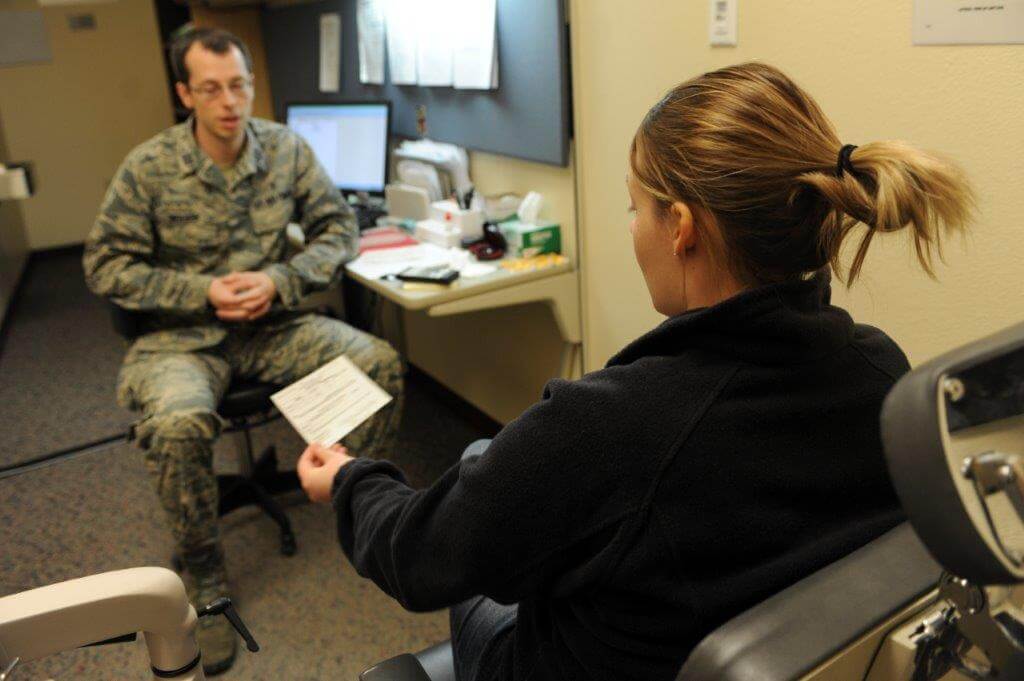What Is A Paranoia Test & Why Is It Needed?

Source: flickr.com
When we have dealt with trauma or dysfunctional relationships, it can damage how we view the world. In some cases, it can make the world and individuals are out to get us. This point of view is often one characteristic of paranoia. According to the Mental Health America website, paranoia involves intense anxious or fearful feelings and thoughts often related to persecution, threat, or conspiracy.
Paranoia can occur with mental disorders but is most often found in psychotic disorders. At times, paranoia can become delusions, which can be so fixed that they cannot be dislodged, even in the face of contrary evidence. Paranoia is often a symptom of paranoid personality disorder (PPD), part of a group of conditions called "Cluster A" personality disorders. These disorders often appear in early adulthood and are more common in men.
If you notice that you are paranoid or seem to suffer from an unrelenting mistrust, then you may be concerned that you have one of these paranoia personality disorders. Throughout this article, we will discuss some of the causes and signs of paranoia, but also what paranoia tests are available and how they can assist you in determining if you need further assistance in addressing your paranoia.
Causes And Signs Of Paranoia
It can be hard to recognize paranoia because you are so focused on your fears. Those fears are amplified and end up drawing others into your paranoia, making you the center of a world that you perceive is full of threats. Paranoid thoughts are often focused on what you think people might be thinking or planning to do against you. However, there may be little proof to back up your suspicions.
It must be noted that paranoia can be justified in some instances. For instance, if you have been mugged in the past, you may be more paranoid about walking through certain areas of your neighborhood. Still, this type of paranoia is focused on justified suspicions. That being said, when paranoia crosses a line, it can cause multiple problems in your life.

Source: flickr.com
There are several different causes of paranoia, which are often related to other mental health disorders. A few of these causes can include:
- Alcoholism - a disease that includes alcohol craving and continued drinking, which can lead to paranoia and delusions
- Bipolar Disorder - this disorder is characterized by depression, mania, and severe mood swings
- Anxiety - a feeling of apprehension and fear characterized by symptoms, such as trouble concentrating, headaches, and sleep problems, which can contribute to increased paranoia
- Brain Tumor - these tumors can press on different areas of the brain, resulting in paranoia or other mood changes
- Drug abuse - an addiction to drugs can result in an altered state of consciousness, which can contribute to paranoia
Paranoia, as part of the group of personality disorders, often displays itself in the following ways:
- Doubting the commitment of others
- Distrusting others and assuming that they aren't loyal to you
- A reluctance to confide in others or even reveal personal information, for fear that it can be used against you later
- Unforgiving
- Quick to hold a grudge
- Find hidden meanings in what people do and say, instead of taking it at face value
- Perceive attacks, even when presented with evidence to the contrary
- Often are hostile, argumentative, and stubborn
What causes paranoia? While the causes are not definitively known, there seems to be a combination of biological and psychological factors. There is also evidence that early childhood experiences, including trauma and abuse, can play a role in the development of PPD.
Types Of Paranoia
The severity of paranoia symptoms can range from mild to severe, and that severity often determines the type of paranoia that an individual suffers from. The more severe forms of paranoia can leave an individual feeling isolated, terrified, and exhausted by the constant worrying over what they believe is happening or going to happen.
For those who suffer from paranoia, it rarely occurs alone but is associated with other mental conditions. Some of these can include anxiety disorders, depression, phobias, and delusional disorder. Paranoid personality disorder and paranoid schizophrenia are two of the more severe disorders associated with paranoia.
If left unchecked, paranoia can negatively impact a person's ability to function in the world, as they see threats around every corner and in people that mean them no harm.
What Is A Paranoia Test?
Various tests can be used to access your level of paranoia. There are multiple tests online that allow you to give answers to questions and then your responses are scored. Many of these websites acknowledge that they are simply there to give you an idea that you may need to address any paranoia that you may have, but that they are not a substitute for a complete diagnostic workup with your physician.Working with a mental health professional, you can go through several diagnostic tests. These tests will include a mental state examination, which evaluates appearance, behavior, rate, and continuity of speech, mood, thought content, and any evidence of hallucinations or abnormal beliefs.

Source: freestockphotos.biz
The physical examination will access your neurological state, looking for signs of focal neurological signs and papilledema. Doctors might also look for signs of alcohol abuse. Additionally, blood tests will be done to look for any physical abnormalities that could be contributing to an unbalance in your mental state. These could include looking at your sugar levels, liver function, thyroid function, electrolytes, calcium, and renal function tests.
Radiological investigations may involve a CT scan or MRI brain, which can be used to detect various causes of delirium or brain changes which could be indicative of other mental issues of which paranoia is a symptom. This process could include assessment of dementia.
If you have noticed areas of your life where paranoia seems to be more prevalent, it is important to bring up your concerns with your physician. Doing so can help you to determine if the paranoia has a physical cause, which can be addressed medically.
Addressing Paranoia Through Treatment
Once you determine that there is not a physical cause for your paranoia, then it is time to work with a licensed therapist to address any underlying causes that could be contributing to your paranoia tendencies. This process will involve recognizing that you are exhibiting this behavior and that you need help to deal with it effectively.
During this time, it is important to look at your history for specific points of trauma or emotional abuse that could be contributing to your feelings of paranoia. Working with a licensed mental health professional, you can also access whether your symptoms are part of another mental health condition.

Source: minot.af.mil
Treatment will be primarily focused on relieving the stress and anxiety associated with paranoia and thus improving your overall wellbeing. Doing so will help them to feel more grounded in reality, as they work to deal with any other issues related to the paranoia.
There are also lifestyle changes that you can make that can help to ease your paranoia. These changes can include regular exercise, making an effort to get a good night's sleep, and taking measures to reduce your stress levels wherever possible. Working with a counselor or therapist, you can learn effective methods to manage the stress in your life, thus positively impacting your feelings of paranoia.
Mental health professionals can work with you to determine the cause of your paranoia and then create a treatment plan to address your specific needs. This treatment plan could include therapy and possibly medical treatments for any physical issues, including depression or anxiety.
A form of psychotherapy called cognitive behavior therapy may also be used. This particular type of therapy helps people to examine and address any thinking patterns or attitudes that could be contributing to their paranoia or other negative behaviors. Psychotherapy can also include focusing on general coping skills, as well as improving your social interactions, communication, and any self-esteem issues.
Those who suffer from paranoia have significant trust issues, so it can be difficult to get them to follow through on any treatment plan. Dealing with just one or two of the underlying issues could help to address the trust level with your therapist, making it easier to work on other causes and symptoms related to your paranoia.
If you believe that you might be suffering from paranoia, contact BetterHelp to connect with an online therapist who can help you to determine the best course of action for you.
Please see this [article/link] for further information
Comments